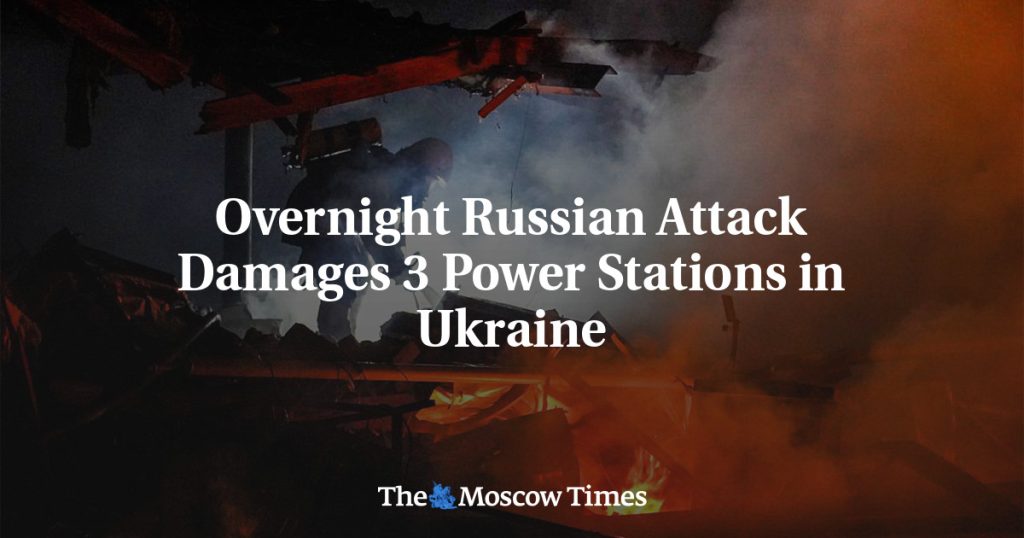Kyiv reported that Russia launched nearly 100 drones and missiles at Ukraine overnight, causing significant damage to three power stations. The attacks were part of an escalation by Moscow, which has been increasing its air strikes on Ukraine, specifically targeting energy infrastructure in response to Ukrainian shelling of Russian border regions. The Ukrainian Interior Ministry confirmed that the attacks had hit 10 regions across the country, resulting in damage to power stations, homes, and injuries to several individuals. The air force reported that 84 air targets were destroyed, including 58 Shahed drones and 26 missiles.
The overnight attacks in Ukraine also targeted three thermal power stations belonging to DTEK, one of the country’s main energy providers. The facilities were left severely damaged, with one employee wounded in the assault. Despite the destruction caused by the attacks, the power engineers at DTEK were quick to respond to the impact and work on repairing the damage. The precise extent of the damage to the power stations and the long-term consequences for Ukraine’s energy supply remain to be seen as the situation unfolds.
As tensions between Russia and Ukraine continue to escalate, the recent wave of air strikes and drone attacks by Russian forces represents a dangerous escalation of the conflict. The targeting of critical energy infrastructure such as power stations poses a significant threat to Ukraine’s ability to provide essential services to its citizens. The attacks also raise concerns about the potential for further escalation and the impact on the civilian population, particularly in regions already affected by ongoing hostilities.
The ongoing conflict between Russia and Ukraine has drawn international condemnation, with calls for both sides to de-escalate and seek a peaceful resolution. The targeting of civilian infrastructure, including power stations, has raised alarm among human rights organizations and diplomatic bodies. The use of drones and missiles in attacks on critical infrastructure further complicates efforts to find a diplomatic solution to the conflict, as it increases the risk of civilian casualties and wider destabilization in the region.
The attacks on Ukraine’s power stations come at a critical moment as the country seeks to secure its energy supply and meet the needs of its population. The targeting of energy infrastructure not only disrupts essential services but also undermines Ukraine’s ability to maintain stability and security amidst the ongoing conflict. The impact of the attacks on power stations will likely have far-reaching consequences for Ukraine’s economy, infrastructure, and overall resilience in the face of continued hostilities.
In response to the attacks, Ukrainian authorities have vowed to defend their country and protect their citizens from further harm. The resilience and determination shown by Ukrainian forces and civilians to withstand the aggression from Russia are crucial in the face of ongoing threats to their security and well-being. The international community must continue to monitor the situation closely and work towards a peaceful resolution that respects Ukraine’s sovereignty and territorial integrity. As the conflict escalates, the need for dialogue, de-escalation, and diplomatic solutions becomes more urgent to prevent further violence and instability.


